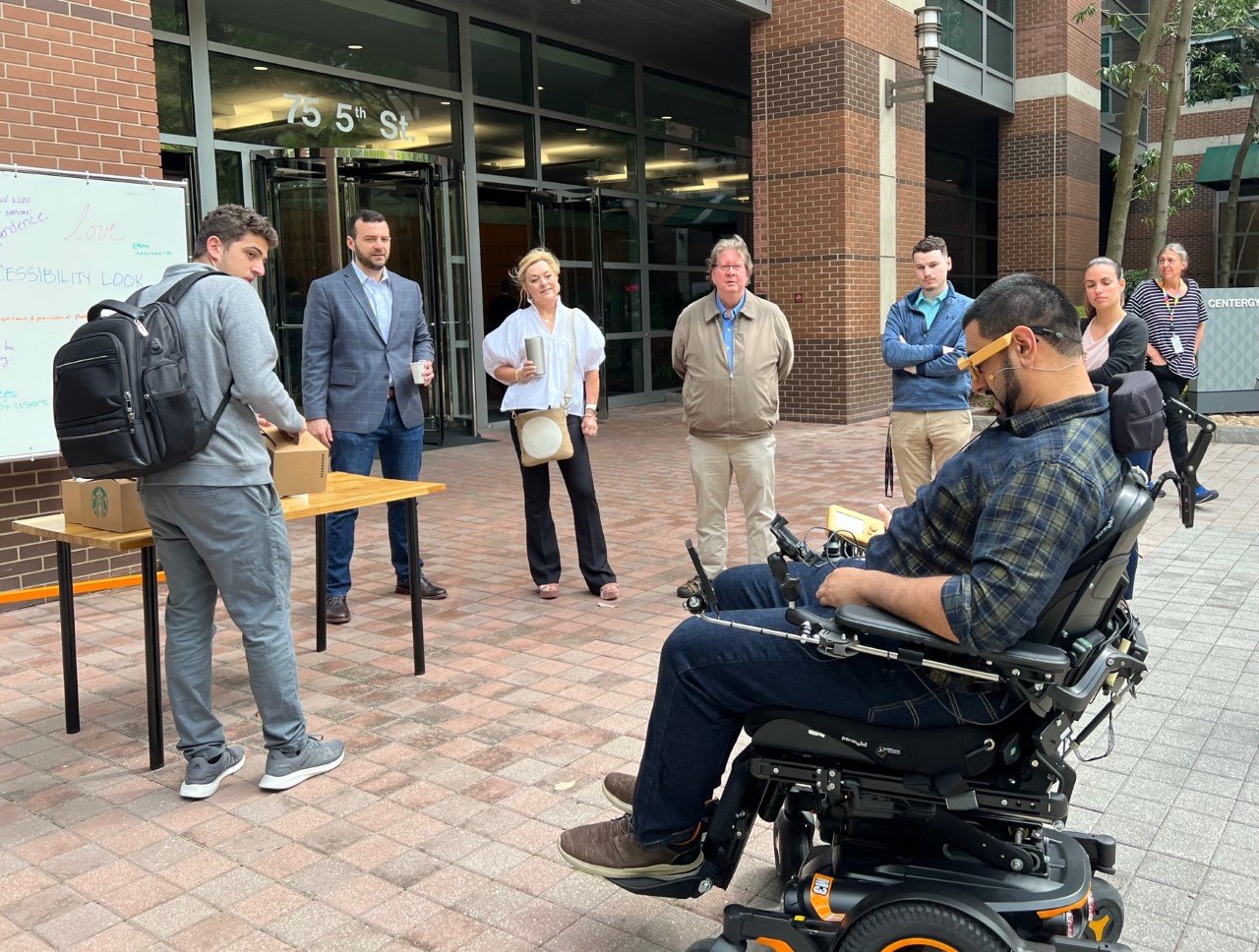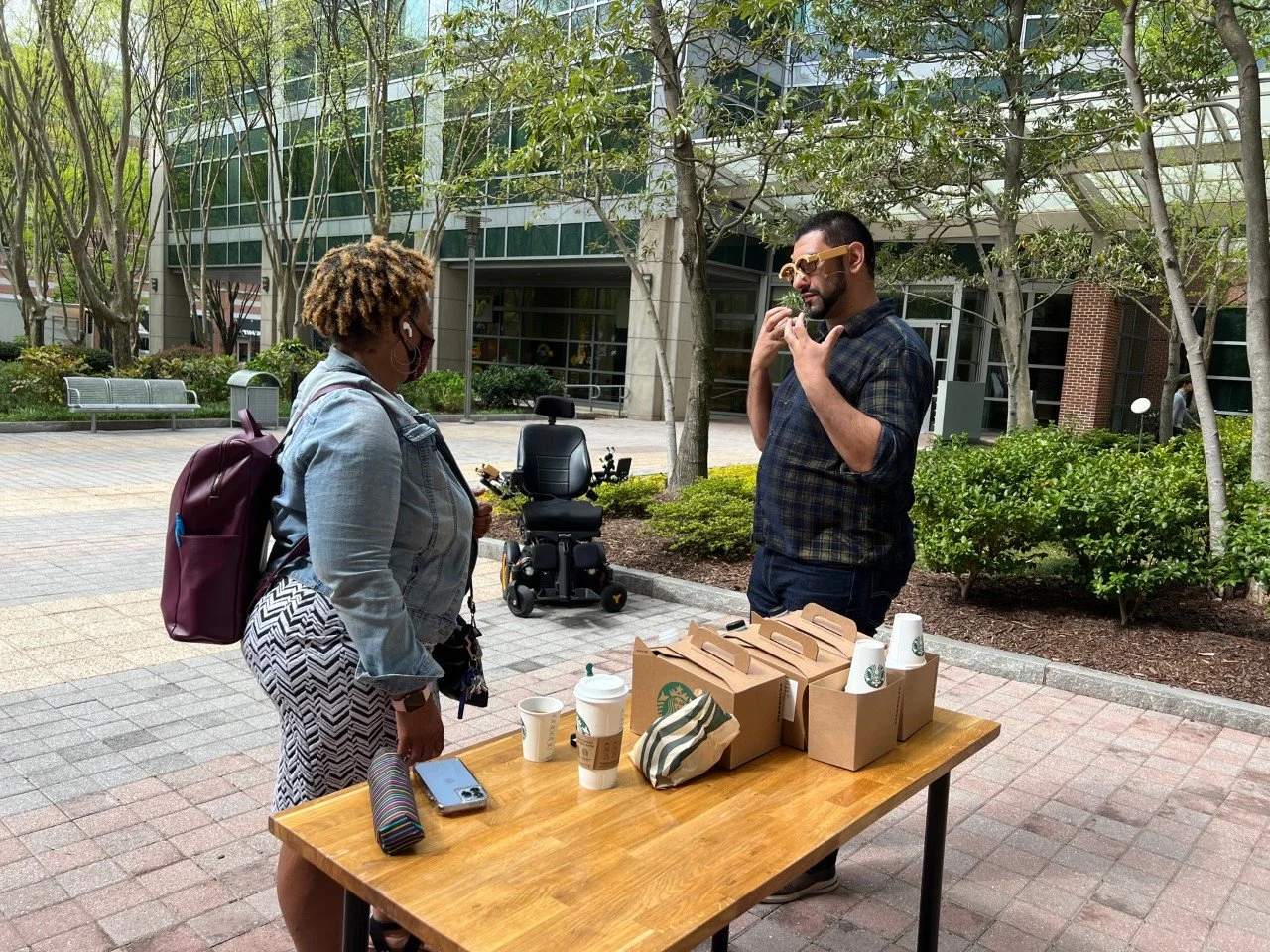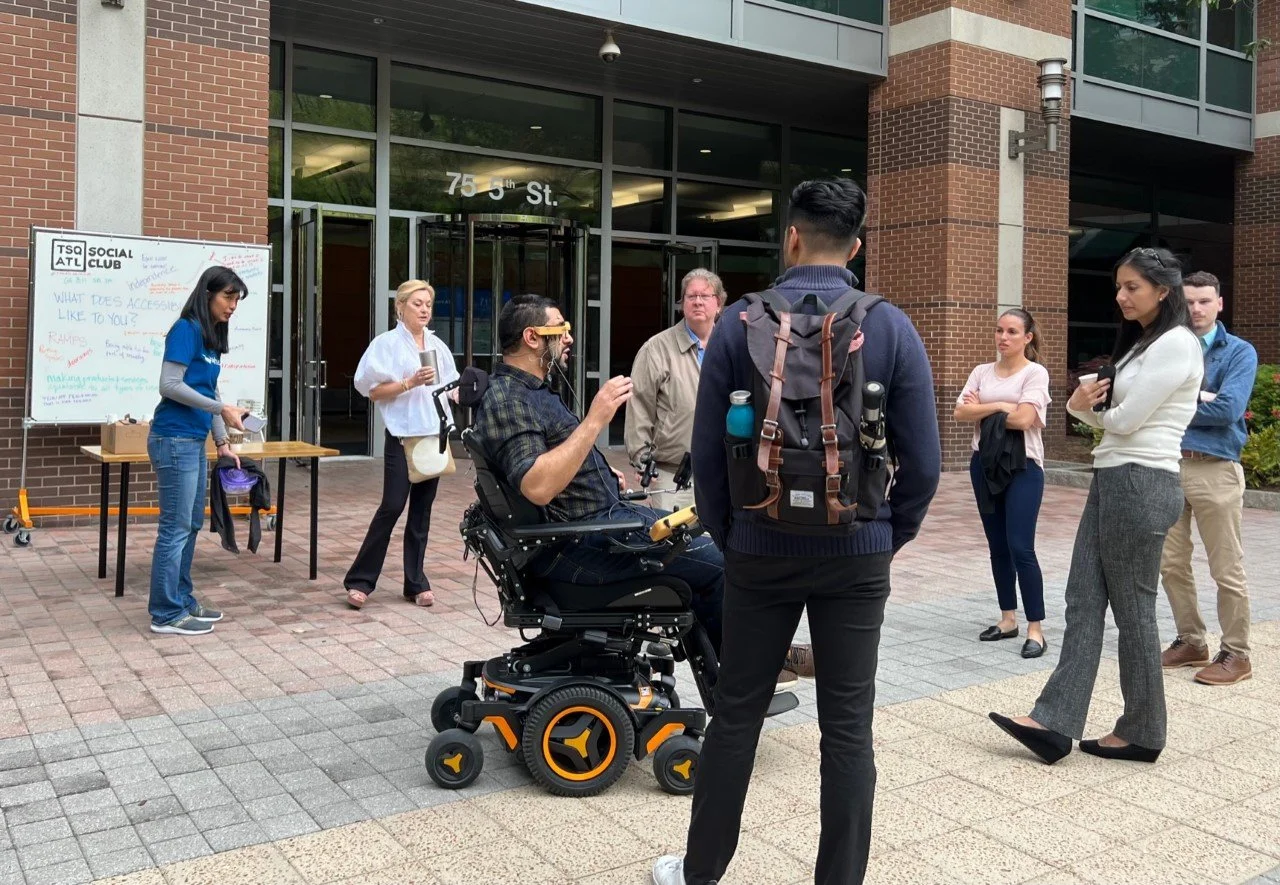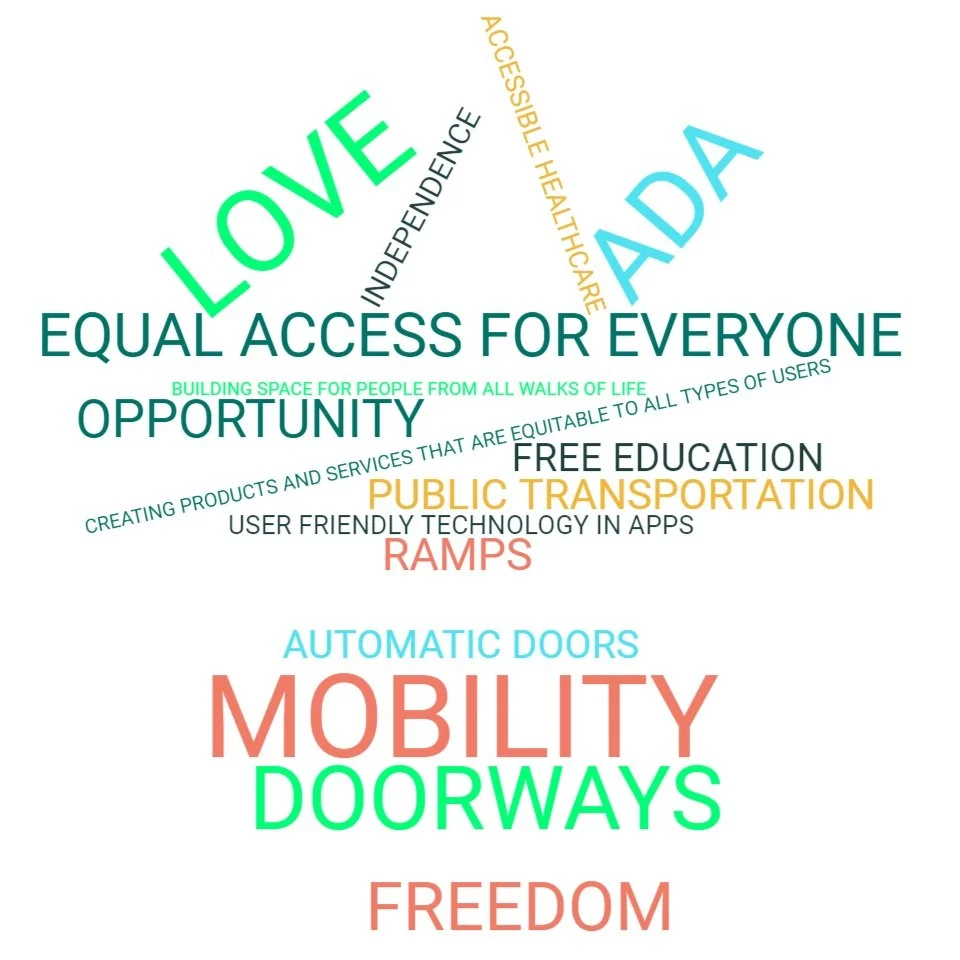MagTrack Technology Gets Tech Square Talking About Accessibility
On what we hope to be one of many beautiful spring days, we popped up on Wednesday afternoon in the Tech Square courtyard to get some fresh air, sunshine, and answers – all around accessibility.
Joined by Nordine Sebkhi, PhD Researcher at the Inan Research Lab in the School of Electrical and Computer Engineering, and Tech Square ATL (TSQATL) Social Club members, we learned about a new way to control power wheelchairs, smart devices, and more.
Enter MagTrack, a wearable, wireless, and adaptable assistive device that enables power wheelchair users to control their connected devices and drive their power wheelchairs using an alternative, multimodal controller.
As co-creater and technical lead in the development of this assistive technology, the cutting-edge device is creating opportunities for independence for people living with tetraplegia, a form of “paralysis caused by illness or injury that results in the partial or total loss of use of all four limbs and torso.”
Using Head-Tongue Controller (HTC) sensor technology, MagTrack allows complex commands to be made with just head and tongue movements. It also “eliminates the need for having multiple assistive technologies, replacing them with a single multimodal and integrated system,” according to Sebkhi. With a wearable alternative controller allowing for access to more complex human-machine interactions, it prompted conversations and questions around what accessibility looks like to our community members.
From public transportation to automatic doors and everything in between, attendees expressed a variety of different ideas when it came to accessibility. And they were beyond thrilled to see this type of research and technology becoming more prominent.
One participant at this spontaneous activation was Matt Golden, Co-Founder and CEO of MapHabit, which focuses on building routines through an interactive care management platform. He said that many of their users struggle with verbal communication and/or mobility and was very impressed with MagTrack. To him, "making products and services equitable to all types of users" is what accessibility is all about.
What does accessibility look like to you? Let us know in the comments below.



